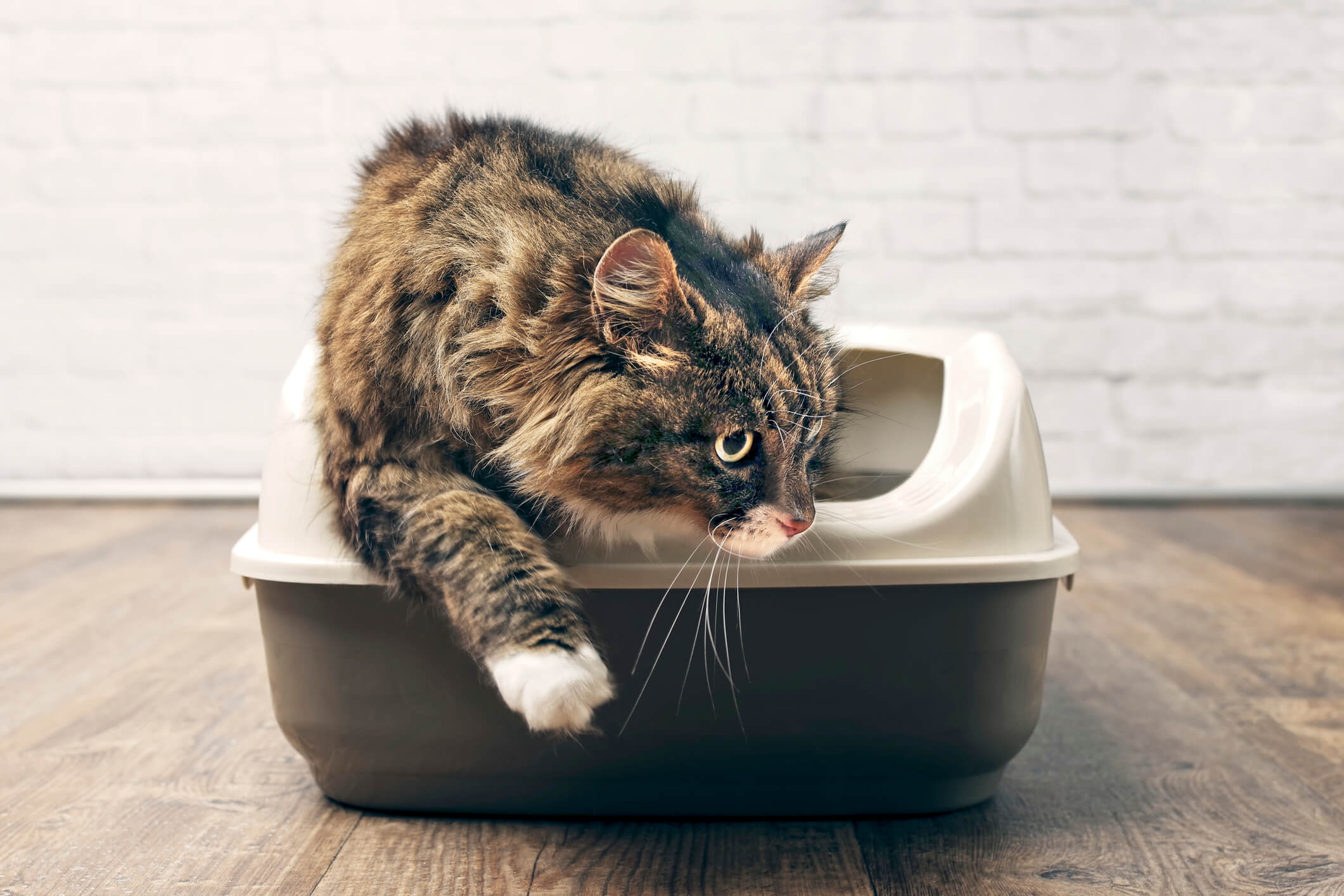
Don’t Forget to Check the Box: Spotting Cat Constipation Before it Becomes Severe
A cat might look fine, but what’s going on inside could be a whole different story. Cats are masters of keeping secrets from their owners, and constipation is one of them. For most pet parents, the health of their kitty’s digestive tract is one big question mark. The only way to spot constipation is by getting up close and personal with their toilet, AKA the litter box.
If your cat seems a bit off, look for the telltale signs of constipation next time they take a bathroom break. Doing so can prevent this minor ailment from developing into a life-threatening condition.
Signs of a constipated cat
Cats are very discreet about their discomfort. A pet parent might not notice constipation in their cat unless they know which symptoms to look for.
Here are the most common ones:
- Nothing in the litter box: Litter boxes never lie. The most obvious sign a cat is constipated is when there’s no poop to clean up. A healthy cat will poop once daily, but it’s normal for them to occasionally skip a day. What’s not normal is a cat that goes several days in a row without passing stool.
- Frequent trips with no result: Although constipated cats poop a lot less, they might visit the litter box a lot more often than a healthy cat. This behavior occurs because the cat is making repeated attempts to relieve themselves. Pet parents who suspect constipation should check the litter box every time their cat tries to defecate. If nothing’s in there, chances are you’ve got a constipated kitty!
- Straining to defecate: When a cat is constipated, stool becomes increasingly difficult to pass. The colon has absorbed too much water, which makes the stool hard and dry. As a result, your kitty might spend more time than usual in the litter box. Their body language will show they’re struggling to defecate, and they may not produce any stool at all.
- Abnormal consistency: Normal cat poop should be cylindrical, dark brown and firm. A constipated cat will produce stool that’s rock-solid and formed into smaller pellets. Cats don’t drink much water to begin with, so they tend to produce firmer stool compared to other animals. However, completely dried-out stool in cats isn’t a good sign.
- Fecal fluid: Cats might secrete fecal fluid when the colon lining gets irritated by hard, dry stool. Pet parents commonly misinterpret fecal fluid as diarrhea when, in fact, their kitty has the opposite problem! Fecal fluid is entirely different from a bowel movement and indicates the cat’s colon is still backed up.
- Change in behavior: Constipated cats often experience a loss of appetite. Constipation is disrupting the usual routine of their digestive system, so other aspects like appetite suffer as a result. Owners may notice their cats sniff the food bowl, then turn away or avoid food altogether. Constipated cats may also appear lethargic due to discomfort in the colon. Loss of appetite and lethargy are symptoms of many other illnesses, so consult your local vet for a proper diagnosis.
Treat cat constipation right away
Healthy cats occasionally skip a day or experience temporary gastrointestinal upset. However, a cat that’s gone several days without pooping requires intervention in order to get their bowel movements back to normal. Pet parents should never assume that cat constipation will resolve on its own. If left untreated, constipation will only get worse and could potentially lead to irreversible health consequences.
A case of constipation that lasts for too long will eventually develop into obstipation. Cats get diagnosed with obstipation when hard, dried-out stool has become impacted inside the colon. Obstipation makes it extremely difficult or impossible to pass stool. Owners might be able to treat this condition with prescribed medicine from a vet along with dietary changes.
Obstipation can quickly turn into megacolon. Megacolon is a very serious condition in which the cat’s colon becomes enlarged from built-up fecal matter. Muscles in the colon lose their ability to contract and push stool towards the rectum. The only treatment for megacolon is to surgically remove the enlarged colon. A cat’s prognosis after surgery is usually good, but this procedure is costly and easily prevented with early intervention.
Many pet parents underestimate how serious cat constipation can get. Save your kitty some discomfort by checking the litter box every day to make sure their bowel movements are regular. Contact your vet right away if you notice any irregularities in the cat’s behavior or litter box usage. You may not realize this in the moment, but detecting constipation could save their life!



